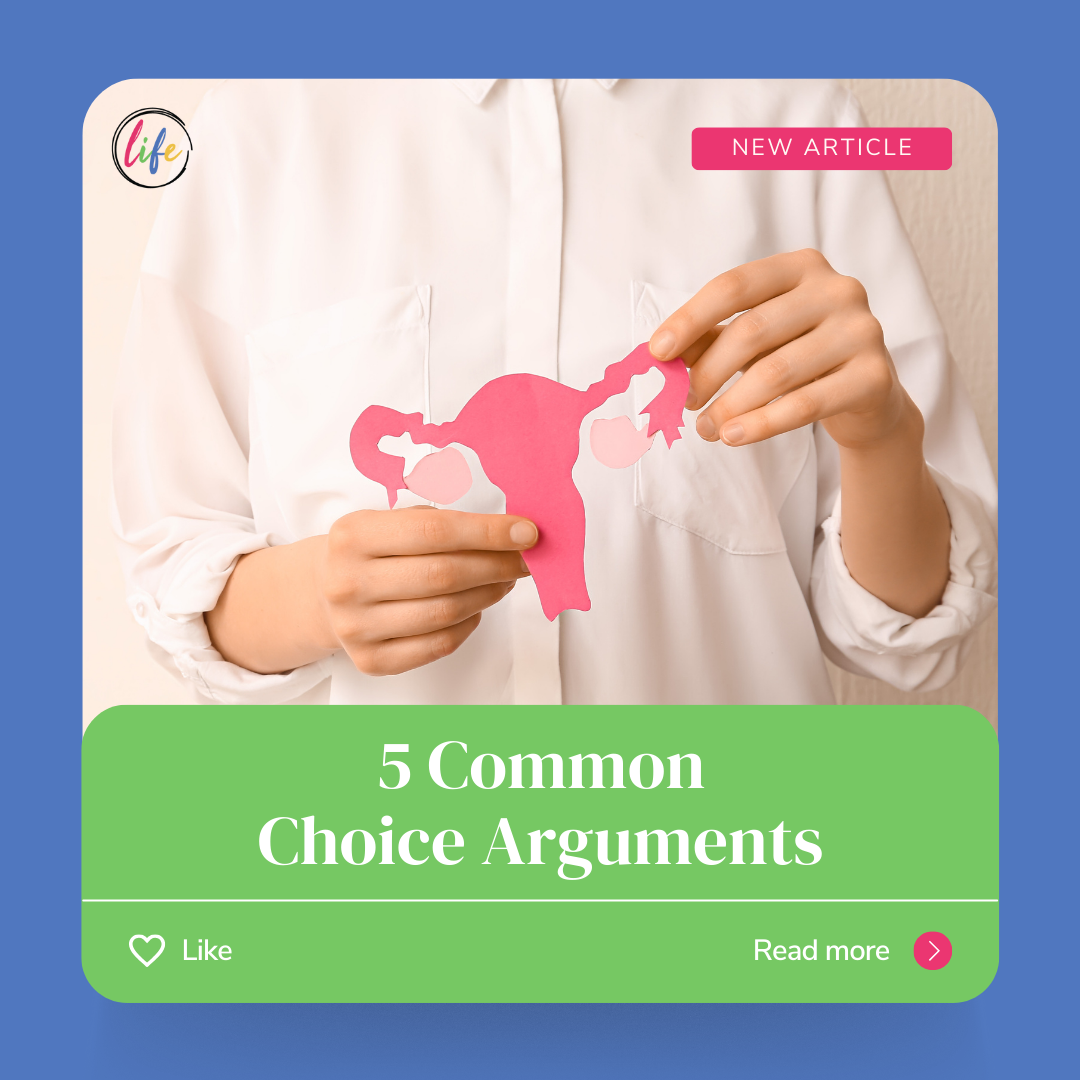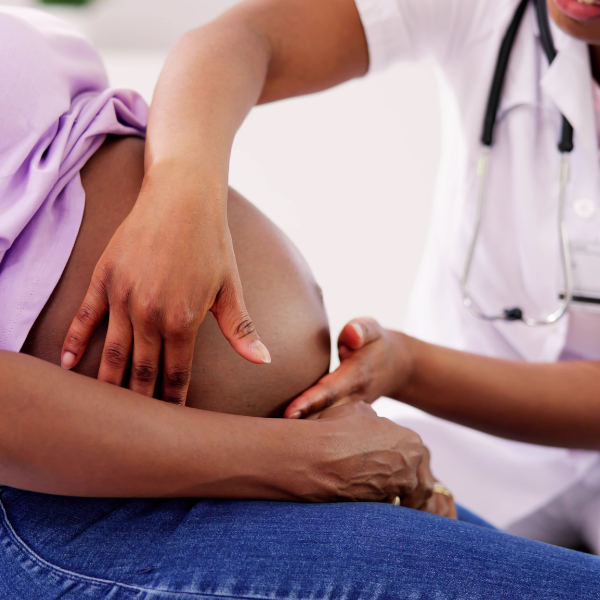
 In the years we have advocated for the unborn, we have encountered many of the same talking points from choice proponents. Here are a few of the most common choice arguments and our responses:
In the years we have advocated for the unborn, we have encountered many of the same talking points from choice proponents. Here are a few of the most common choice arguments and our responses:
My Body, My Choice
A woman’s “reproductive rights” are central to most pro-choice arguments, including “my body, my choice.” Something to consider is that half the babies aborted are females who will develop uteruses. What about their bodily autonomy? A human is a human from conception, so each individual—with or without a uterus—has a right to bodily autonomy.
When a woman chooses abortion, she is not exercising control over her own body but control over another’s body—control that results in that person’s death. Therefore, the “my body, my choice” sentiment is inaccurate and misleading when there are really two separate bodies involved.
We should not punish women who find themselves in an unintended pregnancy. We should provide a full generous spectrum of resources. However, the position of valuing one human life over another is the very basis of oppression throughout the world. Every human life has intrinsic value. When we start to put people in categories, we are all eventually put at risk.
Human vs. Person
Choice proponents insist there is a difference between a human being and a person. This argument is used to devalue human life. We cannot simply redefine terms to justify taking innocent lives. The Merriam-Webster dictionary defines “person” as “human.” Very accurate!
A person is a human and a human is a person. Zygote, blastocyst, embryo, and fetus are simply scientific terms for those stages of the developing human being—just as later we use terms like infant, toddler, preteen, adolescent, adult, etc. The terminology does not signify a change in genetic identity. There is nothing new added genetically after conception. Medical textbooks are clear on that point.
The fusion of the egg and sperm create a human being with its own unique set of DNA—separate from that of its mother or father. For something as irreplaceable as a human life, an objective criteria, such as genetics, should determine humanity.
You Are Choosing the Unborn Over Women
Many believe that by denying women the option to abort their babies, we are ultimately placing more value on the lives of the unborn than the lives of women. This could not be further from the truth!
Following long established common law and cultural norms, the woman’s life would take precedence in a situation where the woman’s and the baby’s physical lives were at risk. What we are saying is that we must recognize that two human beings’ lives are at stake in every abortion decision. Both must be treated with respect.
Should the baby’s life be ended for eternity in order to avoid the months-long consequences of pregnancy? Pregnancy is temporary. Abortion is permanent.
We are compassionate people. There are pathways forward—either parenting or adoption—that enrich, support and value both the woman and the baby.
A Fetus is a Parasite
Many choice proponents say that fetuses are “parasites” because they take nourishment from their mothers, and therefore, should not be considered human beings until they are outside the womb.
It is dehumanizing to refer to the unborn child as a “parasite” and it is scientifically false. The Oxford Dictionary has this definition of parasite: “an organism that lives in or on an organism of another species (its host).” Genetically, the beginning zygote (and later, fetus) is of the human species. We all began the same way. We did not magically change from a parasite to a human.
Our human rights should be protected on the objective basis of core humanity. Please consider that the first right enumerated in our Declaration of Independence is the “Right to Life.” That right forms the foundation for all our rights. Dehumanization is the very basis of oppression throughout the world. Our society and our world will in fact be improved as we protect all human beings.
If You Don’t Like Abortion, Don’t Get One
Choice proponents believe that providing women the informed consent they deserve regarding the harms of abortion is intrusive and coercive. They believe that if you don’t agree with abortion, you can choose not to get an abortion while others reserve the “right” to do so.
“If you don’t like abortion, don’t get one” ignores all moral convention. As societies, we impose many limits on people in the name of protecting others from harm. Some people do not see anything wrong with stealing, but we intervene in their decision to steal in order to protect others.
Pro-choice arguments suggest that forcing a woman to carry an unwanted pregnancy is a violation of her bodily autonomy. However, an embryo is genetically a separate human being with its own unique set of DNA. Therefore, abortion is a violation of the embryo’s bodily autonomy. Pro-life arguments are not inherently anti-woman or anti-choice—the woman has many choices prior to the creation of the new human life. Her choice should end where another human life begins.
We as human beings have not only the right but the responsibility to protect the vulnerable. Mahatma Ghandi said, “The true measure of any society can be found in how it treats its most vulnerable members.”
Learn more about the various stages of fetal development (conception, first, second, and third trimester) and don’t forget to follow us on social media (Facebook, Instagram, and TikTok).